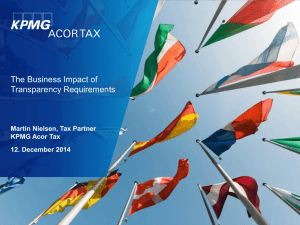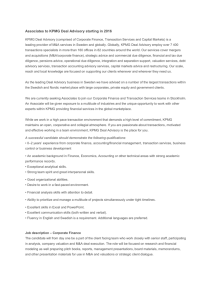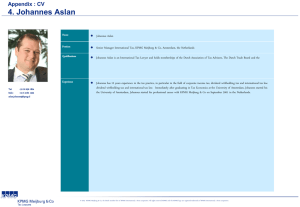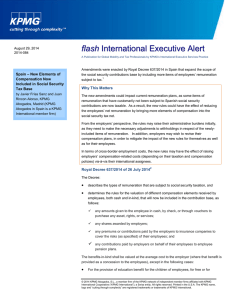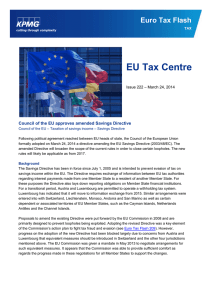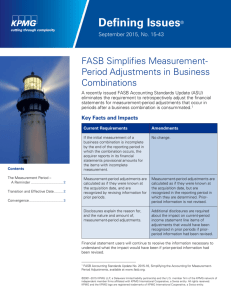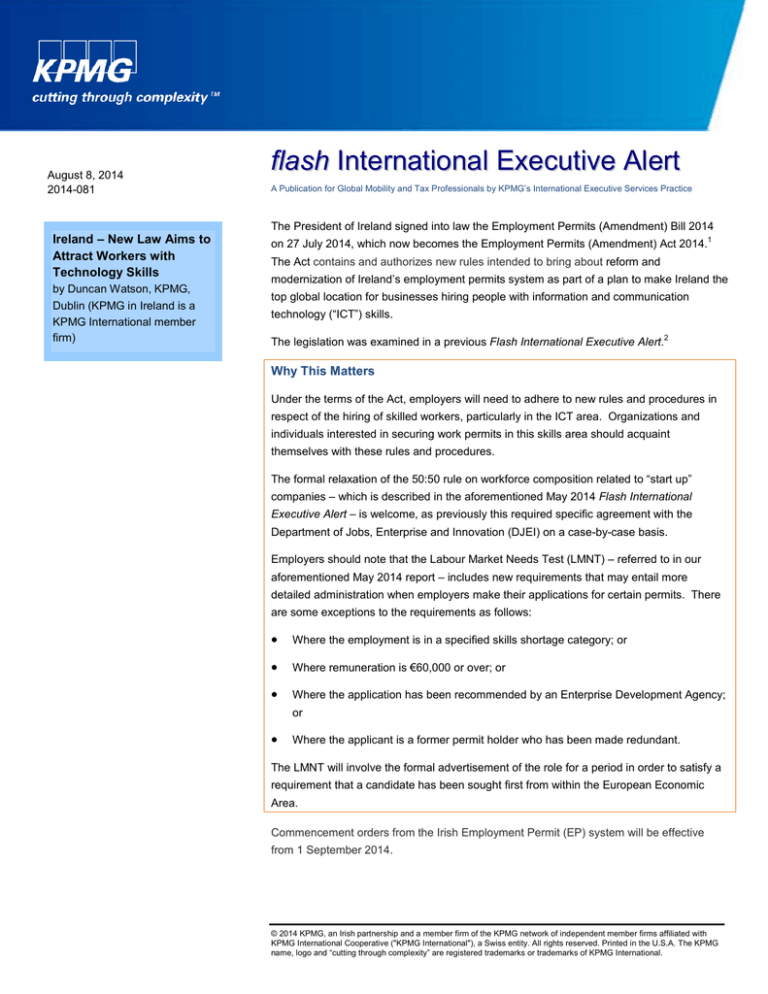
August 8, 2014
2014-081
flash International Executive Alert
A Publication for Global Mobility and Tax Professionals by KPMG’s International Executive Services Practice
The President of Ireland signed into law the Employment Permits (Amendment) Bill 2014
Ireland – New Law Aims to
Attract Workers with
Technology Skills
by Duncan Watson, KPMG,
Dublin (KPMG in Ireland is a
KPMG International member
firm)
1
on 27 July 2014, which now becomes the Employment Permits (Amendment) Act 2014.
The Act contains and authorizes new rules intended to bring about reform and
modernization of Ireland’s employment permits system as part of a plan to make Ireland the
top global location for businesses hiring people with information and communication
technology (“ICT”) skills.
The legislation was examined in a previous Flash International Executive Alert.
2
Why This Matters
Under the terms of the Act, employers will need to adhere to new rules and procedures in
respect of the hiring of skilled workers, particularly in the ICT area. Organizations and
individuals interested in securing work permits in this skills area should acquaint
themselves with these rules and procedures.
The formal relaxation of the 50:50 rule on workforce composition related to “start up”
companies – which is described in the aforementioned May 2014 Flash International
Executive Alert – is welcome, as previously this required specific agreement with the
Department of Jobs, Enterprise and Innovation (DJEI) on a case-by-case basis.
Employers should note that the Labour Market Needs Test (LMNT) – referred to in our
aforementioned May 2014 report – includes new requirements that may entail more
detailed administration when employers make their applications for certain permits. There
are some exceptions to the requirements as follows:
•
Where the employment is in a specified skills shortage category; or
•
Where remuneration is €60,000 or over; or
•
Where the application has been recommended by an Enterprise Development Agency;
or
•
Where the applicant is a former permit holder who has been made redundant.
The LMNT will involve the formal advertisement of the role for a period in order to satisfy a
requirement that a candidate has been sought first from within the European Economic
Area.
Commencement orders from the Irish Employment Permit (EP) system will be effective
from 1 September 2014.
© 2014 KPMG, an Irish partnership and a member firm of the KPMG network of independent member firms affiliated with
KPMG International Cooperative ("KPMG International"), a Swiss entity. All rights reserved. Printed in the U.S.A. The KPMG
name, logo and “cutting through complexity” are registered trademarks or trademarks of KPMG International.
August 8, 2014
2014-081
Footnotes:
1 See the Act as published in the official gazette, Iris Oifigiu’il (online), at:
http://www.irisoifigiuil.ie/currentissues/Ir290714.pdf .
2 See Flash International Executive Alert 2014-054, 6 May 2014.
*
*
*
*
The information contained in this newsletter was submitted by the KPMG International member firm in
Ireland. The information contained herein is of a general nature and based on authorities that are
subject to change. Applicability of the information to specific situations should be determined through
consultation with your tax adviser.
Flash International Executive Alert is an IES publication of KPMG LLP’s Washington National Tax
practice. To view this publication or recent prior issues online, please click here. To learn more about
our IES practice, please visit us on the Internet: click here or go to http://www.kpmg.com .
© 2014 KPMG, an Irish partnership and a member firm of the KPMG network of independent member firms affiliated with KPMG
International Cooperative ("KPMG International"), a Swiss entity. All rights reserved. Printed in the U.S.A. The KPMG name, logo
and “cutting through complexity” are registered trademarks or trademarks of KPMG International.
2



